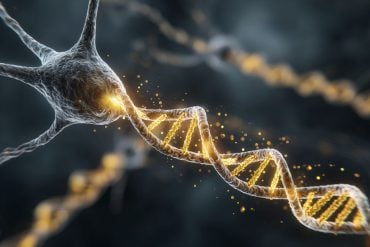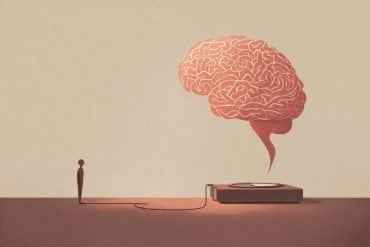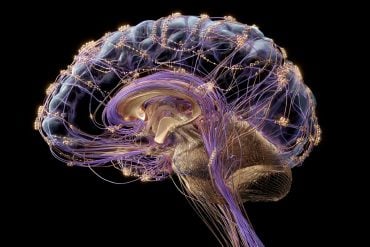Summary: New research reveals that politicians with narcissistic, psychopathic, or Machiavellian traits significantly increase affective polarization among voters. When citizens identify ideologically with such leaders, they become more hostile toward political opponents.
This polarization is driven not by opposing politicians but by the actions and rhetoric of the leaders they support. The findings suggest that emotionally manipulative leadership poses a threat to democratic norms and social cohesion.
Key Facts:
- Dark Triad Impact: Politicians high in narcissism, psychopathy, or Machiavellianism intensify hostility among their supporters.
- Supporter Identification: The more voters identify with these leaders, the more polarized and hostile their views become.
- Democracy at Risk: These traits can erode trust, reduce cooperation, and weaken democratic institutions.
Source: University of Amsterdam
Politicians who exhibit ‘dark’ personality traits such as narcissism, psychopathy or Machiavellianism contribute to increasing affective polarisation among citizens.
This is the conclusion of a new study conducted by the University of Amsterdam (UvA), the University of Lausanne and Vrije Universiteit Amsterdam, recently published in the European Journal of Political Research.

The researchers linked the personality profiles of over 90 prominent politicians worldwide with voter attitudes in 40 national elections. The results reveal striking patterns.
Politicians who score high on the so-called Dark Triad – narcissism (excessive self-focus), psychopathy (emotional coldness and lack of empathy), and Machiavellianism (a tendency toward manipulation and deception) – are associated with greater hostility toward political opponents among their followers.
Polarisation from within
The researchers show that dark traits have an effect when voters feel ideologically close to the politician in question. The stronger the identification, the more likely supporters are to adopt hostile stances.
‘Machiavellian politicians in particular – strategic, manipulative, goal-driven – appear to be catalysts for affective polarisation: they deepen emotional divides between their supporters and others,’ explains Alessandro Nai, researcher at the UvA.
Remarkably, the personality traits of political opponents have little to no effect on the degree of polarisation.
Nai: ‘We know today that voters tend to take cues from politicians they feel close to, and are more likely to ignore messages from politicians they disagree with. It is thus our own politicians who make us angrier, fuel hostile thinking towards others, and contribute to affective polarisation. And this can have dramatic consequences.’
Dominant leaders
The study included leaders such as Donald Trump, Jair Bolsonaro, Emmanuel Macron, Marine Le Pen, Angela Merkel, Theresa May, Jeremy Corbyn, Boris Johnson, Viktor Orbán, Narendra Modi, Silvio Berlusconi, Shinzo Abe, Recep Tayyip Erdoğan and many others. Dutch politicians such as Mark Rutte and Geert Wilders were also part of the analysis.
While no individual scores are disclosed, the researchers emphasise a broader trend: during times of political tension, voters tend to prefer dominant, hardline leaders, even when they exhibit norm-breaking or confrontational behaviour.
Democratic risks
The findings cast a critical light on the global rise of ‘dark’ leaders. According to the researchers, the confrontational and uncompromising personality traits of such leaders pose clear risks to democratic processes.
‘When the personal traits of leaders poison public discourse, the public’s willingness to cooperate weakens, social cohesion suffers, and ultimately democratic norms erode,’ says co-author Katjana Gattermann of the UvA.
The researchers call for greater awareness of the role (dark) personality plays in political leadership, in particular when these traits appear in strongmen.
Nai concludes: ‘We have shown in previous research that dark personality traits are particularly frequent in authoritarian leaders and populists; the evidence seems thus to be piling up that narcissism, psychopathy, and Machiavellianism are important phenomena if we want to understand why politics, today, seems so confrontational.’
About this psychology and politics research news
Author: Laura Erdtsieck
Source: University of Amsterdam
Contact: Laura Erdtsieck – University of Amsterdam
Image: The image is credited to Neuroscience News
Original Research: Open access.
“Ripping the public apart? Politicians’ dark personality and affective polarization” by Katjana Gattermann et al. European Journal of Political Research
Abstract
Ripping the public apart? Politicians’ dark personality and affective polarization
Growing evidence exists about the importance of dark personality traits – narcissism, psychopathy and Machiavellianism – in political leaders, broadly leading to heightened political aggressiveness and partisan conflict.
Building on this expanding research agenda, we study the possible association between dark personality in politicians and deepened affective polarization – that is, increased affective distance between partisan groups coupled with stronger dislike for out-parties – in the public.
We do so by linking a large-scale expert survey (NEGex) and a collection of post-election surveys (CSES), including information for more than 90 leading candidates having competed in 40 elections worldwide.
Our results show that the dark personality of top politicians can be associated with upticks in affective polarization in the public – but only when it comes to the personality of in-party candidates (that is, a candidate from voters’ preferred party), and only for high levels of ideological proximity between the candidate and the voter.







